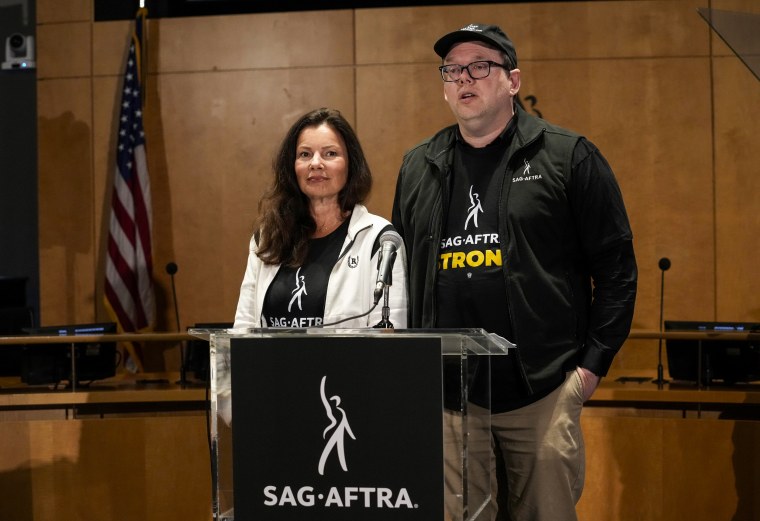WASHINGTON — One of the men accused of assaulting Capitol Police Officer Brian Sicknick on January 6 was sentenced to more than 6 years in prison on Friday.
Julian Khater, who admitted to dousing Sicknick and another officer with a chemical irritant, was sentenced to 80 months in prison with credit for 22 months of time served. His co-defendant, George Tanios, who bought the spray and delivered it to Khater, was also sentenced Friday to time served.
Sicknick died a day after being assaulted, but prosecutors declined to charge the two men in his death.
The government had sought a 90-month sentence for Khater, accusing him of a “cowardly” and “premeditated” attack on police.
Assistant US Attorney Gilead Light argued before Judge Thomas Hogan that violence had already broken out on Capitol Hill when Khater arrived. “Julian Khater didn’t show up to a protest in front of the Capitol,” he said. “He came to a riot, he came to a war.”
Khater had pleaded guilty to two felony assaults on officers and faced between 78 and 97 months in prison under sentencing guidelines. He admitted to spraying two officers in the face with the irritant chemical: Sicknick and Capitol Police Officer Caroline Edwards, who testified before the committee Jan. 6 at its first public hearing.
Tanios pleaded guilty to two misdemeanors: entering and remaining in a restricted building and disorderly conduct in a restricted building, and faced up to 6 months in prison under sentencing guidelines.
As part of his sentence, Tanios will be on probation for one year and will be required to participate in 100 hours of community service. He will also have to pay an unspecified penalty: the amount left in the GoFundMe account he used to raise money for his legal defense.
Sicknick died of natural causes a day after the January 6 attack, having suffered two strokes, but the medical examiner said what happened during the attack played a role in his death. Capitol Police said after the medical examiner found that Sicknick “died in the line of duty, courageously defending Congress and the Capitol.”
Sicknick’s family members were present in the courtroom Friday, including his mother, Gladys; brothers, Kenneth and Craig; sister-in-law, Nicholle; and his longtime partner, Sandra Garza.
Garza filed a wrongful death lawsuit against Tanios, Khater and former President Donald Trump earlier this month. The lawsuit accuses Trump of inciting mob violence on January 6 and asks Trump, Khater and Tanios for $10 million each.
Sicknick’s family read his written victim impact statements in court, describing their grief and taking out their anger on Tanios, Khater and the other rioters who attacked officers at the US Capitol. Garza asked the judge to give both men the maximum sentence allowed and said: “I have not seen any remorse in either of the defendants.”
Gladys Sicknick noted in her statement that the men had referred to themselves as “foot soldiers” in Trump’s attempt to overturn the 2020 election, saying her son, an Air National Guard veteran, had actually served as a soldier.
“Soldiers don’t raise gallows and call for the vice president to be hanged,” he said. “Soldiers do not attack the seat of their own government brandishing pipes, sticks and bats. They don’t plant homemade bombs. They don’t drag a police officer between them, beat him senseless, and pump him repeatedly as he begs for his life. And they don’t hit or blind the cops with chemicals, like you did with Brian. You attacked my son like he was an animal. You are the animal, Mr. Khater.
Sicknick’s family also disputed the charges the two men faced, noting in their statements that neither was charged with murder. “Our laws are much more lenient than their actions towards Brian,” Craig Sicknick said.
His brother, Kenneth, echoed that sentiment in his own statement: “They may both be advocating a lesser charge than murder, but I have little doubt that their actions led to my brother’s death.”
Edwards gave the final victim statement, saying she felt survivor guilt after Sicknick’s death.
“I felt like the worst kind of officer,” he said. “Someone who didn’t help their friend couldn’t help their friend.”
“When I close my eyes, I can still see his face, white as a sheet,” he said, adding that he would give anything to ease the pain of Sicknick’s family and fellow officers.
The courtroom was packed Friday with members of the US Capitol Police as well as the media. Among the crowd were US Capitol Police Officer Harry Dunn and former Capitol Police Sgt. Aquilino Gonell, who have been outspoken defenders of their fellow officers who fought the mob on January 6.
julia jester Y Ryan J. Reilly contributed.



